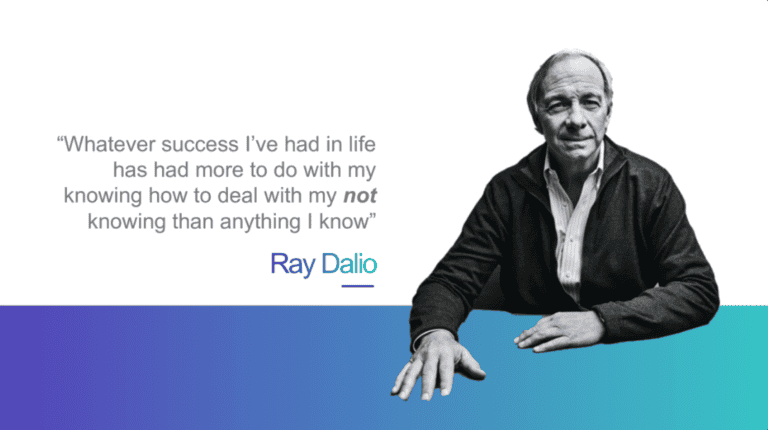Life Lessons from Dale Carnegie to Succeed
|
Getting your Trinity Audio player ready...
|
“Success is getting what you want. Happiness is wanting what you get.”
– Dale Carnegie
Dale Carnegie, a renowned writer and public speaking guru, has left behind a legacy of wisdom through his teachings. His principles have stood the test of time and continue to inspire individuals to enhance their communication skills, build influence, and achieve success in their personal and professional lives. In this article, we will explore some of the most valuable life lessons from Dale Carnegie that can help us navigate the path to success with confidence and purpose.
Key Takeaways:
- Be a great listener, fostering trust and understanding in relationships.
- Enlarge your vision, seeking new experiences and knowledge to open doors of opportunity.
- Learn from your mistakes, using them as stepping stones for personal growth.
- Commit to lifelong learning, continuously expanding your knowledge and skills.
- Find joy in doing what you love, fueling motivation and purpose.
Be a Great Listener
Being a great listener is one of the most important skills we can cultivate in our personal and professional lives. Dale Carnegie, renowned for his teachings on effective communication skills and interpersonal skills training, emphasized the value of this skill. Active listening helps build effective relationships and fosters trust and respect. By genuinely listening to others, we demonstrate that their thoughts and opinions are important to us.
Effective communication involves not only expressing ourselves but also understanding others. When we listen attentively, we gain valuable insights and knowledge, which can help us make informed decisions and form meaningful connections. Active listening allows us to be present in the conversation, understanding the emotions, needs, and perspectives of the people we interact with.
“The most basic of all human needs is the need to understand and be understood. The best way to understand people is to listen to them.” – Dale Carnegie
The Benefits of Active Listening
By developing effective listening skills, we can experience a range of benefits:
- Enhanced Communication: Listening with full attention improves the quality of our conversations by helping us understand others more deeply. It allows us to respond appropriately, fostering productive discussions.
- Building Rapport: Actively listening to someone shows that we value their thoughts and opinions. This builds trust and strengthens relationships, creating a positive and supportive environment.
- Conflict Resolution: Being a great listener enables us to understand different perspectives and find common ground. It facilitates conflict resolution by promoting empathy and understanding.
- Personal Growth: As we actively listen, we gain new insights and perspectives. This broadens our understanding of the world and expands our knowledge and personal growth.
Tips for Becoming a Great Listener
Here are some practical tips to help improve your listening skills:
- Show genuine interest: Pay attention and show that you are genuinely interested in what the other person is saying. Maintain eye contact, nod, and provide verbal and non-verbal cues to demonstrate your engagement.
- Avoid interrupting: Allow the person speaking to express their thoughts without interruption. Avoid jumping to conclusions or formulating responses before they have finished speaking.
- Practice empathy: Put yourself in the speaker’s shoes and try to understand their perspective and emotions. Show empathy by acknowledging their feelings and validating their experiences.
- Ask open-ended questions: Encourage deeper discussions by asking open-ended questions that prompt the speaker to share more information. This demonstrates your interest and encourages meaningful dialogue.
- Summarize and clarify: Summarize and paraphrase the speaker’s key points to ensure you have understood them correctly. If necessary, ask clarifying questions to gain a better understanding.
Becoming a great listener is an ongoing journey that requires practice and conscious effort. By honing this skill, we can improve our interpersonal connections, enhance our communication effectiveness, and build stronger relationships.
Enlarge Your Vision
Dale Carnegie emphasized the significance of having an expansive vision in order to achieve success. A limited perspective can hold us back from realizing our full potential, preventing us from seizing new opportunities. However, by constantly seeking new experiences and knowledge, we can broaden our horizons and open doors to personal and professional growth.
Expanding our vision enables us to develop confidence and influence, key attributes for success in any endeavor. When we have a clear picture of our goals and aspirations, we are better equipped to make proactive decisions, take calculated risks, and navigate challenges with resilience.
One of the effective personal development tips is to step out of our comfort zone and explore unfamiliar territories. This can involve trying new activities, learning new skills, or engaging with people from diverse backgrounds. By doing so, we gain a deeper understanding of the world around us and expand our network, which can lead to valuable connections and opportunities.
“The only way to discover the limits of the possible is to go beyond them into the impossible.” – Arthur C. Clarke
Building confidence and influence go hand in hand with enlarging our vision. As we stretch our capabilities and embrace new challenges, we cultivate self-assurance and a sense of purpose. Confidence radiates from within and draws others to us, fostering trust and respect in personal and professional relationships.
An enlarged vision also allows us to make a positive impact on the world. By adopting a broader perspective, we gain insights into the needs of others and identify opportunities to contribute meaningfully. Building influence involves using our knowledge, skills, and resources to inspire and motivate others towards a common purpose.
Personal development and building confidence and influence are ongoing journeys. It requires continuous learning, reflection, and adaptation to keep pace with an ever-evolving world. As we strive for personal and professional growth, let us remember Dale Carnegie’s teachings and aim to enlarge our vision, embracing new experiences and embracing the opportunities that come our way.
Learn from Your Mistakes
According to Dale Carnegie, mistakes are valuable learning opportunities that should be embraced rather than feared. He believed in the power of learning from our mistakes and using them as stepping stones for personal growth. By adopting a positive attitude towards mistakes, we can become more resilient, confident, and better equipped to overcome obstacles on our path to success. Learning from our mistakes allows us to gain new insights, develop new strategies, and improve our decision-making skills. It fosters personal development and helps us build confidence and influence in all aspects of our lives.
Embracing Mistakes for Personal Growth
When we make mistakes, it’s easy to feel discouraged and disappointed. However, by shifting our perspective and embracing mistakes as opportunities to learn and grow, we can transform our setbacks into stepping stones. Mistakes provide valuable feedback on what didn’t work and what needs improvement. They highlight areas where we can develop new skills and strategies. Each mistake becomes a lesson that enhances our personal development, building our character and resilience along the way.
“Success is stumbling from failure to failure with no loss of enthusiasm.” – Winston Churchill
By learning from our mistakes, we also develop a growth mindset. Instead of seeing failure as a reflection of our worth or abilities, we see it as a natural part of the learning process. This mindset allows us to approach challenges with curiosity, persistence, and a willingness to take risks. It empowers us to view mistakes as opportunities for growth and to keep striving for success.
Building Confidence and Influence
Learning from our mistakes is a powerful way to build confidence and influence. As we navigate through challenges and setbacks, we gain a deeper understanding of our strengths and weaknesses. We become better equipped to handle similar situations in the future, which boosts our confidence. When others see our ability to learn from mistakes and persevere, they are more likely to trust and respect us. Our journey of growth and personal development becomes an inspiration to those around us, allowing us to influence and motivate others.
Furthermore, learning from mistakes cultivates humility. It acknowledges that we are all imperfect and capable of making errors. By owning our mistakes, taking responsibility, and learning from them, we demonstrate authenticity and integrity. This builds trust in our relationships and enhances our influence and leadership abilities.
| Benefits of Learning from Mistakes | How it Builds Confidence and Influence |
|---|---|
| 1. Personal growth and development | 1. Demonstrates resilience and perseverance |
| 2. Acquisition of new skills and knowledge | 2. Inspires trust and respect |
| 3. Enhanced decision-making abilities | 3. Cultivates humility and authenticity |
| 4. Increased self-awareness | 4. Builds leadership and influence |
Commit to Learning
In order to succeed in today’s rapidly changing world, it is essential to embrace a lifelong learning mindset. Dale Carnegie, a renowned expert in personal development and building influence, emphasized the significance of continuous education and personal growth. By committing ourselves to learning, we not only expand our knowledge but also develop valuable skills that can boost our confidence and influence.
Personal development tips:
- Set Learning Goals: Establish specific goals for your personal and professional growth. Whether it’s acquiring new skills, deepening your knowledge in a specific area, or developing leadership abilities, setting clear learning objectives will provide direction and motivation.
- Embrace Curiosity: Cultivate a curious mindset and a thirst for knowledge. Approach new ideas, experiences, and perspectives with an open mind, allowing yourself to explore different subjects and expand your horizons.
- Seek Diverse Learning Opportunities: Look for opportunities to learn from a variety of sources. Attend workshops, conferences, webinars, and seminars to gain insights from industry experts and thought leaders. Engage in online courses, podcasts, and books to access a wealth of knowledge at your fingertips.
- Stay Up-to-Date: Dedicate time to stay informed about the latest trends, developments, and advancements in your field of interest. Subscribe to industry newsletters, follow relevant blogs, and join professional communities to stay current in your area of expertise.
- Cultivate Critical Thinking: As you learn, develop the ability to think critically and evaluate information objectively. This will enable you to separate fact from fiction, analyze complex situations, and make well-informed decisions.
Building confidence and influence:
- Enhanced Expertise: The more knowledge and skills you acquire, the more confident you become in your abilities. Building a strong foundation of expertise will boost your confidence and enhance your influence within your field.
- Improved Communication: Learning provides you with new insights and perspectives, enabling you to communicate with clarity and confidence. As you gain knowledge, you can effectively articulate your ideas, engage in meaningful conversations, and inspire others with your expertise.
- Adaptability: Continuous learning enhances your adaptability and versatility. It equips you with the skills and knowledge necessary to navigate dynamic environments, embrace change, and overcome challenges. This adaptability builds confidence and influence, as you demonstrate your ability to thrive in diverse situations.
“The more that you read, the more things you will know. The more that you learn, the more places you’ll go.” – Dr. Seuss
By committing to a lifetime of learning, you invest in your personal and professional growth, gradually building confidence and increasing your influence. Embrace personal development tips and broaden your horizons to unlock new opportunities and achieve success.
Have Fun Doing What You Love
When it comes to personal development tips, one key aspect is aligning your work with your passions. Dale Carnegie, an influential figure in building confidence and influence, believed that finding and pursuing what you love is essential for success. By engaging in activities that spark enthusiasm and joy, you not only fuel your motivation but also enhance your productivity and sense of purpose.
Imagine waking up every day excited to do what you love, whether it’s a hobby, a creative pursuit, or a fulfilling career. When you enjoy what you do, it becomes easier to devote your time and energy, and you’ll find yourself more committed to pursuing excellence.
Passion provides the drive to overcome challenges and setbacks, pushing you to expand your skills and knowledge in your area of interest. It also allows you to approach tasks with enthusiasm and a positive mindset, increasing your chances of achieving outstanding results.
Finding and Pursuing Passion
Discovering your passion is a journey that involves self-reflection, exploration, and experimentation. Start by reflecting on activities or subjects that bring you joy, ignite curiosity, and make you lose track of time.
Consider the different aspects of your life – from hobbies and interests to professional aspirations. What activities or topics make you feel excited, fulfilled, and energized? What are your natural talents and strengths? These questions can guide you in identifying your passions.
Once you have a better understanding of your passions, find ways to incorporate them into your life. It could involve pursuing a new career path, starting a side project, or dedicating more time to your hobbies. Embrace opportunities to learn and grow within your areas of interest, and don’t be afraid to take calculated risks.
“Find a job you love, and you’ll never work a day in your life.” – Dale Carnegie
By aligning your work with your passions, you create a harmonious balance between personal fulfillment and professional success. You’ll be more likely to invest the time and effort required to hone your skills, build expertise, and stay motivated even during challenging times.
Ultimately, embracing your passions not only enhances your personal development but also increases your overall happiness and satisfaction with life. When you truly enjoy what you do, it radiates through your interactions with others, building your confidence and influence along the way.
| Benefits of Pursuing your Passions |
|---|
| Greater motivation and dedication |
| Increased productivity and creativity |
| Enhanced sense of fulfillment and purpose |
| Improved mood and overall happiness |
| Heightened confidence and influence |
Be Empathetic
Dale Carnegie’s teachings emphasized the importance of empathy in effective communication and interpersonal skills training. Empathy allows us to understand and consider others’ perspectives, fostering better relationships and improving our overall communication skills.
When we practice empathy, we demonstrate genuine care and understanding towards others, which builds trust and rapport. By putting ourselves in someone else’s shoes, we can gain insight into their thoughts, feelings, and experiences, enabling us to communicate more effectively.
“Empathy is the key to great communication. When we truly listen and understand others, we can respond in a way that meets their needs and fosters a stronger connection.”
In both personal and professional settings, empathetic communication allows us to establish meaningful connections and resolve conflicts more effectively. It helps us to relate to others and build trust, creating an environment where collaboration and cooperation thrive.
By incorporating empathy into our interactions, we can maximize our potential for success. Empathy enables us to anticipate the needs and concerns of others, allowing us to tailor our communication style to ensure our message resonates.
Furthermore, empathy plays a significant role in conflict resolution. By showing empathy towards conflicting parties, we can defuse tension, find common ground, and work towards mutually beneficial solutions.
Benefits of practicing empathy in everyday life:
- Improved understanding and connection with others
- Enhanced communication skills
- Increased cooperation and collaboration
- Improved conflict resolution abilities
To summarize, incorporating empathy into our communication processes is an essential aspect of effective communication skills and interpersonal skills training. By embracing empathy, we can cultivate strong relationships, foster better understanding, and achieve greater success in all areas of our lives.
Create Your Own Emotions
According to Dale Carnegie, our emotions have a significant impact on our success. He believed that by taking control of our emotions and using them to our advantage, we can shape our outlook on life and harness our emotions as a tool for success.
Cultivating positive emotions is essential in personal development and building confidence and influence. Positivity allows us to approach challenges with optimism and resilience, enabling us to overcome obstacles and achieve our goals. By focusing on the positive aspects of our lives and cultivating gratitude, we can create a more positive and empowering emotional state.
“The happiness of your life depends upon the quality of your thoughts.”
Dale Carnegie also emphasized the importance of avoiding negative emotions such as anger, jealousy, and fear. These emotions drain our energy and hinder our progress. By recognizing and reframing negative thoughts, practicing mindfulness, and adopting healthier coping mechanisms, we can better manage and overcome negative emotions.
Developing emotional intelligence, the ability to understand and manage our own emotions and those of others, is vital in personal and professional growth. By cultivating self-awareness, empathy, and effective communication skills, we can navigate relationships, solve conflicts, and build strong connections.
Ultimately, by creating our own emotions and consciously shaping our emotional state, we can develop a positive mindset that drives us towards personal and professional success. It is a journey of self-discovery and self-mastery that requires practice, perseverance, and continuous personal development.
Tips for Creating Your Own Emotions
- Practice gratitude and focus on the positive aspects of your life
- Avoid negative self-talk and replace it with positive affirmations
- Engage in activities that bring you joy and fulfillment
- Cultivate self-awareness and regulate your emotions
- Develop empathy and understanding towards others
- Surround yourself with positive and supportive people
Remember, creating your own emotions is a powerful tool in personal development. By harnessing the power of your emotions, you can build confidence, influence others, and achieve success in all areas of your life.
Never Criticize, Condemn, or Complain
Dale Carnegie believed in the power of positivity and the detrimental effects of criticism, condemnation, and complaining. He understood that these negative behaviors not only erode relationships but also hinder personal growth and success. Instead, he advocated for focusing on the positive aspects of life and adopting a constructive mindset.
Effective communication skills are crucial in avoiding criticism, condemnation, and complaining. By practicing empathy and actively listening to others, we can better understand their perspectives and find solutions together. Interpersonal skills training equips individuals with the tools to express their opinions and concerns in a respectful and considerate manner, fostering healthier relationships.
“When dealing with others, be firm but fair, and always strive to find common ground. This approach allows for open communication, cooperation, and problem-solving without resorting to criticism or condemnation.”
By replacing negative thoughts and behaviors with positive ones, we can cultivate stronger relationships and create a more supportive and harmonious environment. This shift in mindset not only enhances our own happiness but also sets the stage for personal and professional growth.
Benefits of Avoiding Criticism, Condemnation, and Complaining:
- Builds trust and rapport in relationships
- Promotes effective problem-solving and conflict resolution
- Enhances self-awareness and self-control
- Fosters a positive and productive work culture
- Increases overall happiness and satisfaction
By embracing effective communication skills and interpersonal skills training, we can eliminate the negativity of criticism, condemnation, and complaining from our interactions, paving the way for personal growth, success, and fulfilling relationships.
The Importance of Lifelong Learning
In his teachings, Dale Carnegie emphasized the value of lifelong learning as a crucial factor in personal and professional development.
According to Carnegie, learning should not be limited to formal education; it should be a continuous process that encompasses all aspects of life.
By embracing lifelong learning, individuals can acquire new knowledge, expand their skill sets, and stay ahead in an ever-changing world.
This commitment to learning enables personal growth, builds confidence, and enhances influence in various areas of life.
Whether it is acquiring new personal development tips or honing professional skills, lifelong learning is the key to building confidence and influence.
H3: Benefits of Lifelong Learning
Continuously engaging in learning offers numerous benefits:
- Increase in knowledge and expertise in specific areas
- Enhanced critical thinking and problem-solving abilities
- Adaptability to changes in technology and market trends
- Improved communication and interpersonal skills
- Inspiration and motivation for personal and professional growth
By actively seeking opportunities for learning, individuals can unlock their full potential and remain competitive in their chosen fields.
Continual Learning for Personal and Professional Growth
The journey of lifelong learning encompasses various avenues:
- Formal Education: Pursuing degrees, certifications, or attending workshops and seminars.
- Online Courses and Webinars: Taking advantage of e-learning platforms and webinars to acquire new skills.
- Reading Books and Publications: Engaging in diverse genres and subjects to broaden knowledge.
- Attending Conferences and Events: Participating in industry conferences and events for networking and staying informed about cutting-edge developments.
- Mentorship and Coaching: Seeking guidance from experienced professionals to accelerate personal growth.
By incorporating these approaches into their lives, individuals can actively engage in personal development, consistently evolving and expanding their capabilities.
Lifelong Learning Strategies
| Strategy | Benefits |
|---|---|
| Continuous Skills Development | Staying relevant in a rapidly changing job market |
| Industry Research and Trend Analysis | Identifying emerging opportunities and adapting to market shifts |
| Networking and Collaboration | Building connections and accessing new learning opportunities |
| Reflective Practice | Gaining insights and learning from personal experiences |
| Embracing Challenges and Taking Risks | Fostering resilience and expanding horizons |
By integrating these strategies into their personal development journeys, individuals can build confidence, influence, and ultimately achieve their goals.
The Impact of Dale Carnegie’s Teachings
Regardless of our career or education, we can find valuable guidance for success in the lessons from Dale Carnegie. His teachings on effective communication skills, personal development, and building influence have proven to be timeless and invaluable. By applying his principles to our lives, we can enhance our communication, build stronger relationships, and achieve personal and professional success.
“In my courses, I have seen countless individuals transform their lives by embracing Dale Carnegie’s principles. From enhancing their communication skills to empowering themselves with confidence, these teachings have had a profound impact on their personal and professional journeys.”
Lessons from Dale Carnegie
Dale Carnegie’s teachings encompass a range of valuable life lessons that can significantly impact our success:
- Master the art of effective communication: Dale Carnegie’s principles provide practical techniques for improving our communication skills, enabling us to express ourselves with clarity, empathy, and influence.
- Develop strong interpersonal relationships: Carnegie’s teachings emphasize the importance of building meaningful connections based on trust, respect, and understanding, which can contribute to our personal and professional growth.
- Foster self-confidence and influence: By implementing Dale Carnegie’s principles, we can cultivate our confidence, increase our influence, and positively impact the people and situations around us.
No matter our background or aspirations, we can all benefit from Dale Carnegie’s teachings. Through his valuable insights, we can learn how to effectively navigate various aspects of life, empowering ourselves to attain the success and fulfillment we desire.
Conclusion
Dale Carnegie’s teachings offer timeless wisdom and practical strategies for success. By incorporating his lessons into our lives, we can develop essential skills and perspectives that enhance our personal and professional growth. From learning to be a great listener to committing to lifelong learning, Carnegie’s principles provide valuable insights and guidance.
By applying Carnegie’s teachings, we can strengthen our communication skills, fostering better relationships and building influence in our interactions. These principles empower us to connect with others effectively and navigate challenging situations with confidence.
Whether it is through understanding the importance of empathy, creating our own emotions, or avoiding negativity, Carnegie’s teachings offer a roadmap for personal development and success. Lessons from Dale Carnegie, his principles, and teachings are not mere theories; they are practical strategies that can be implemented in our daily lives, enabling us to achieve the success and fulfillment we desire.








